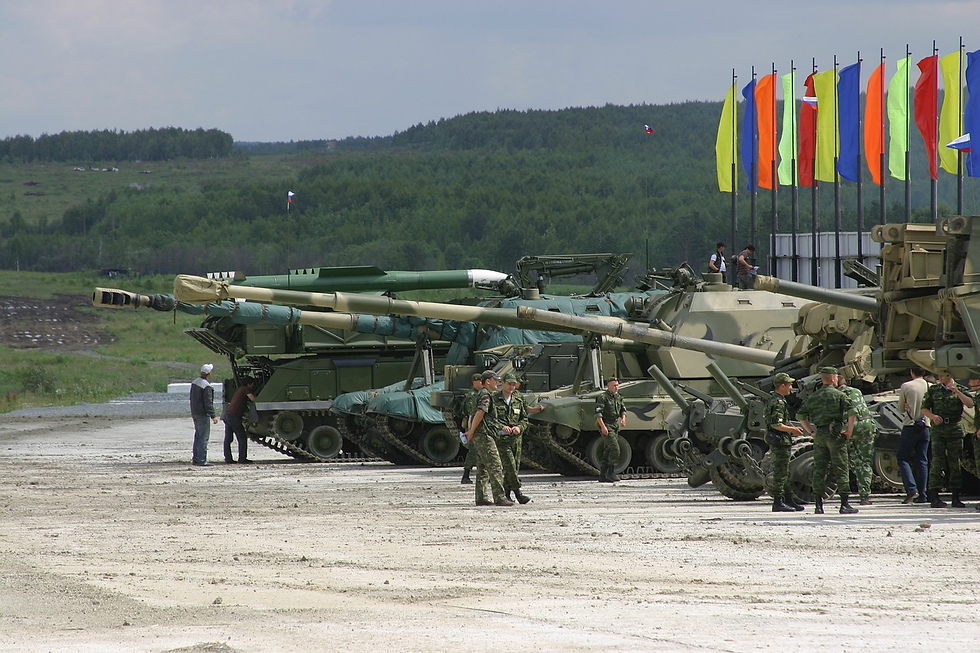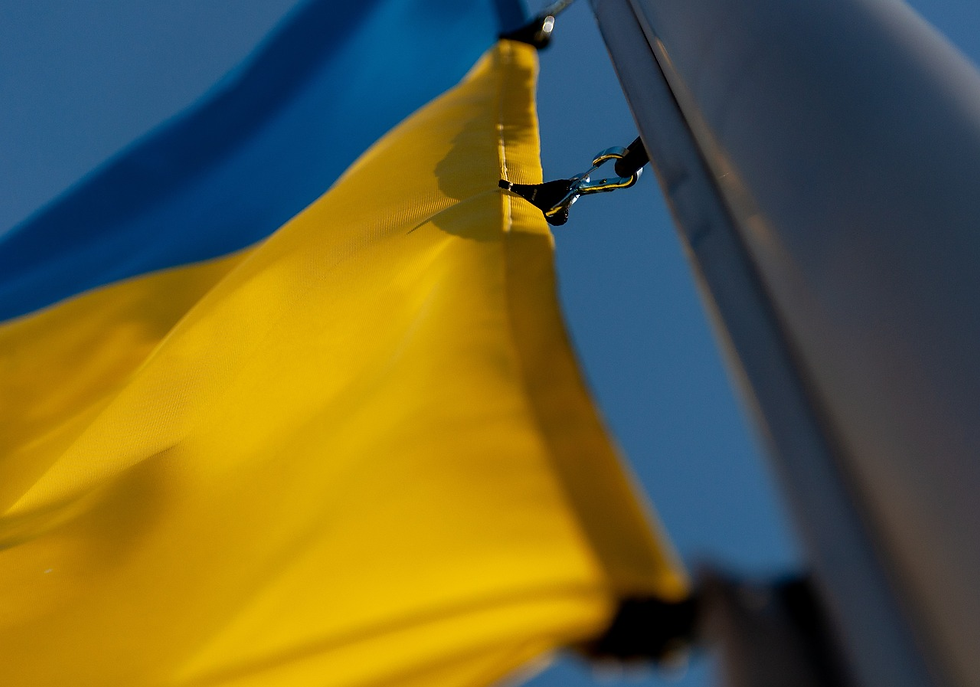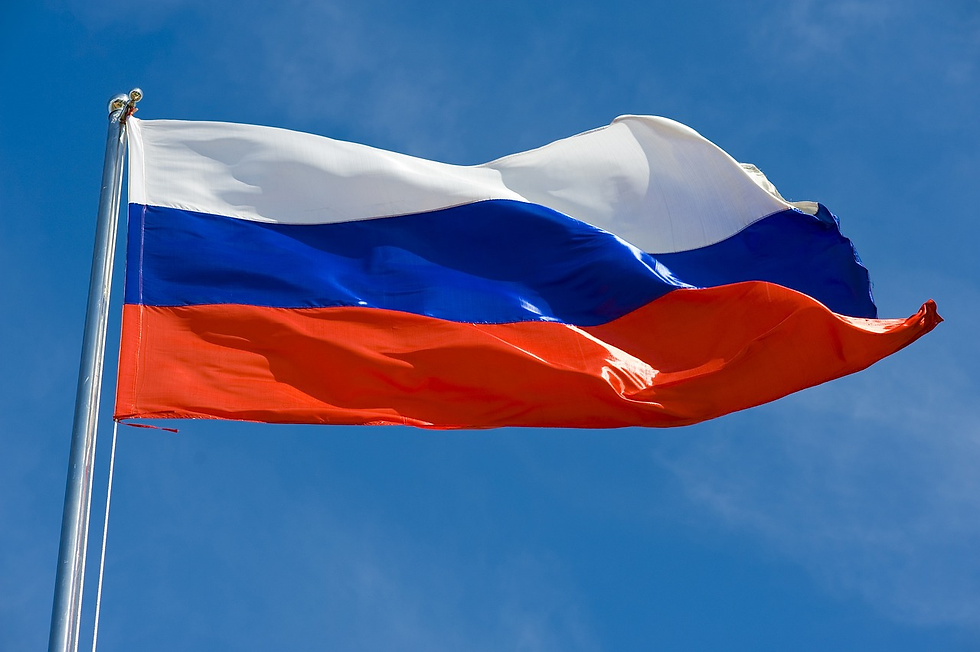Resistance to Russian Invasion Remains Strong Almost Three Weeks in
- Raunaq Singh Bawa

- Mar 15, 2022
- 3 min read
Updated: Dec 23, 2024
For over 2 weeks, Russia has been waging full-scale conventional war on Ukraine. On the 24th of February, Russian President Vladimir Putin addressed the world, announcing the commencement of “special military operations” in Ukraine. At least 636 civilians have been killed in the past 3 weeks, though more deaths are likely to have gone unreported.
This came on the heels of a prior Russian recognition of the separatist regions of Donetsk and Luhansk, located in Ukraine’s Donbas region. Since then, Russian forces have invaded Ukraine on three fronts—the north (via Belarus), the east (via Russia and the Donbas), and the South (via the Donbas and Crimea). While they have made significant territorial gains over the past weeks, the Russian advance seems to have stalled, as the Ukrainian forces are putting up a stiff resistance, defying past projections.

Russia has been belligerent to its former Communist bloc neighbours for several years now, as was most evident from its actions in 2008 (the Georgia war) and 2014 (the annexation of Crimea). Yet, in terms of scale, the present campaign is unlike anything modern Russia has ever carried out (while precedents do exist in its Soviet and Imperial predecessors). Therefore, one must ask why this action has been carried out, and perhaps equally importantly—why now?
The Kremlin has a slew of apparent justifications for its invasion of Ukraine, with the core narrative being two-pronged: the first dealing with the nature of the Ukrainian state, the second with NATO’s continual post-1991 expansion. In the former, the Kremlin’s claims run far and wide, from Ukraine historically being no more than a Russian province—implying the Ukrainian state to be an illegitimate construct—to modern-Ukraine being a state run by anti-Russia fascists. Western leaders and commentators cast doubt on these allegations. The latter is a geopolitical consideration. Russia’s allegations present NATO to be the premier aggressor in this conflict, with the Russian action being a form of pre-emptive self-defence.
Motivations notwithstanding, Russian progress thus far has been far from impressive. The Russian advance has been stalled significantly on the northern and eastern fronts, with most significant gains being in the south. While the military situation is evolving on an hourly basis, it is particularly important to note larger economic and geopolitical trends.
NATO has made it a point to showcase its unity in the face of Russian aggression. Militarily, NATO has made it a point to not directly intervene in Ukraine, given that this would amount to a declaration of war against Russia: something all NATO members wish to avoid for fear of nuclear escalation. However, while its troop presence has been significantly bolstered in Eastern Europe, NATO has also actively supplied military equipment to the Ukrainian armed forces.
Further, in a series of otherwise unprecedented announcements, the NATO allies have announced radical and far-ranging sanctions targeting the Russian economic and financial systems. Most notable among these are the exclusion of select Russian banks from the SWIFT system, and the restrictions being imposed on the purchase of Russian oil and natural gas. Significantly, the US announced an outright ban on the import of these resources from Russia.
The former is significant, considering that SWIFT is the principal financial messaging system which facilitates international bank-to-bank transactions. With their exclusion from SWIFT, affected Russian banks are effectively excluded from the international financial system.
Western announcements on oil and gas have taken most observers by surprise, considering the potential instability this may cause on international crude prices, and the consequent spillovers which the pandemic-afflicted global economy may endure. While the US has outright banned the import of Russian oil and gas, this move is still feasible, considering that the country is itself a major oil producer. Europe’s decision to phase out Russian oil, however, is far more surprising. Considering Russia is Europe’s largest supplier, shifting to newer suppliers will require much time and effort, with a large-scale restructuring of the continent’s oil transportation infrastructure. Geography allows Russia to easily transport oil to Europe through a pervasive network of land and sea-based pipelines. In order to increase oil imports from North America and West Asia, Europe will require greater infrastructure for the processing and storage of Liquefied Natural Gas (LNG).
While fatalities continue to rise, Russia finds itself faced with a stubborn Ukrainian resistance. Rising international responses and domestic dissent have put the Russian leadership in a tight spot. Despite this, Russia has only demonstrated stiffer commitment towards achieving its stated goals, and is showing no signs of backing down. Already it is clear that the standing international and economic political order will have been altered irreversibly by this conflict.

_edited.png)



Comments